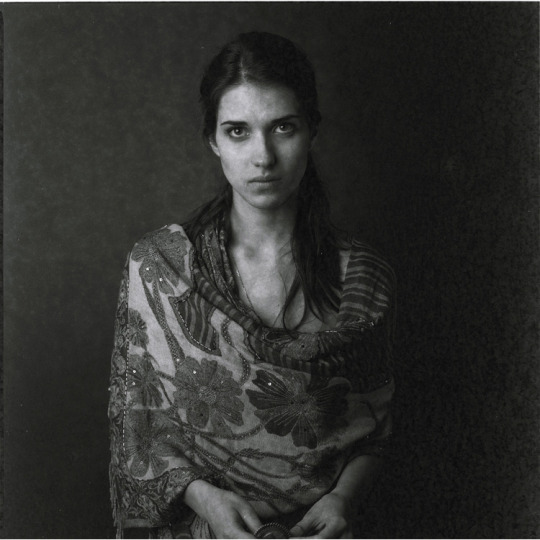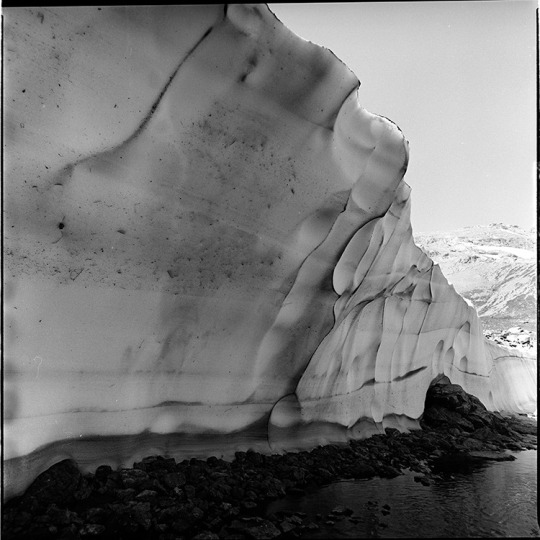#Karachun
Text
✨Kara love post✨



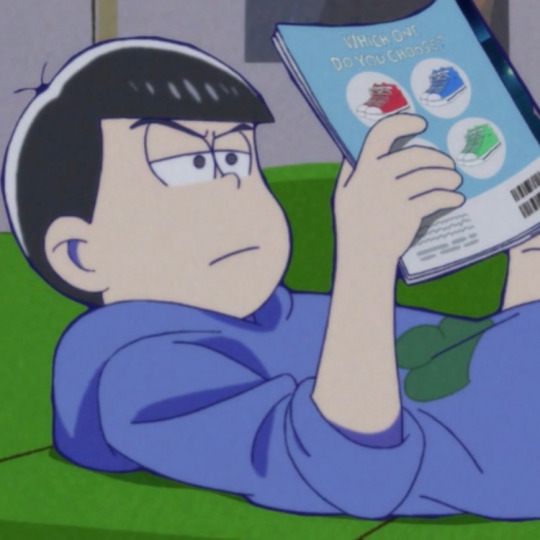
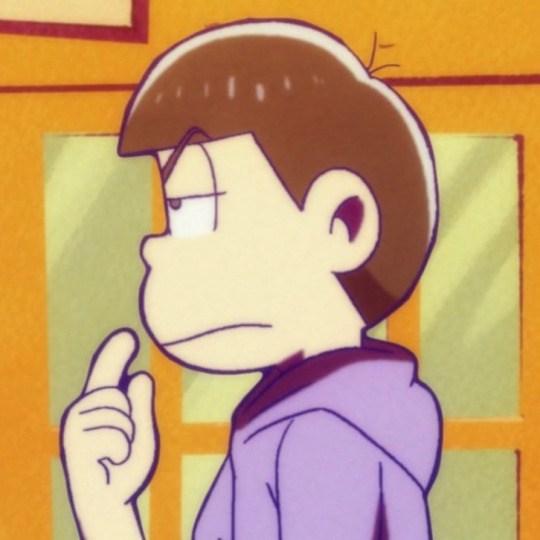


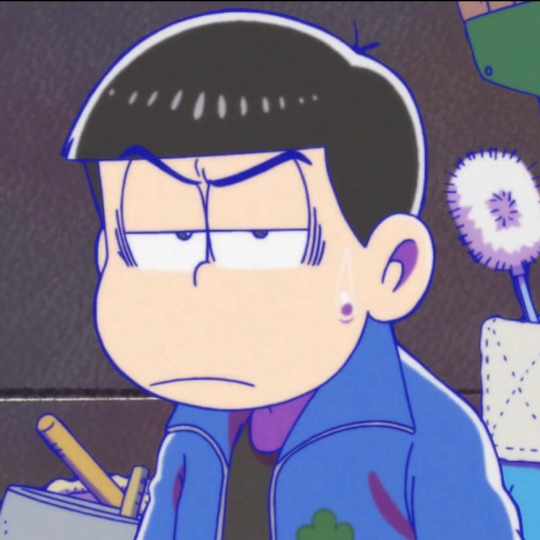
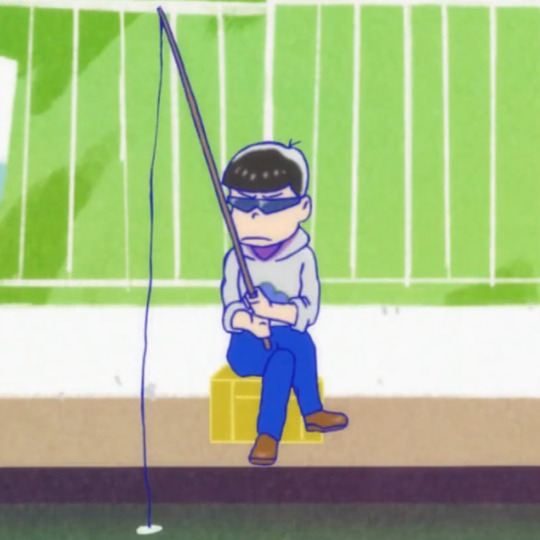
Love my silly boy <3
#karamatsu#karamatsu matsuno#kara#karachun#osomatsu san#osomatsu-san#mr osomatsu#mister osomatsu#おそ松さん#anime#funny#also we are too similar in too many aspects and idk how to feel about that#why are sapphics so obsessed with this silly man
144 notes
·
View notes
Text
magnitoshakhtinsk <3 tsentrosibirsk as in mandela county <3 maple county
9 notes
·
View notes
Text
I still wonder if they're actually going to do something with Knecht Ruprecht in relation to Veles or if that brief mention was nothing lol. I haven't seen much of a connection between the two, but Ded and Veles are already associated with each other since he's believed to be Veles' son, Veles' winter hypostasis, or a member of his retinue.
Veles is associated with Santa because he's sometimes believed to be Moroz or Karachun, there's also the story of Elijah the Prophet and St. Nicholas where he takes on St. Nick's role while Perun acts as St. Elias, and Santa is considered to be a replacement for Veles similar to Knecht giving the sack to Ded in Housamo. Knecht Ruprecht is more adjacent to figures like Krampus though since he deals with naughty children. Knecht and Veles are both considered to be demons/underworld adjacent, so I guess they might've pulled a connection from there. Or maybe I'm missing some obscure Santa lore lol.
Of course Ded mentioning that MC reminded him of Knecht Ruprecht could be nothing or just another case of early game writing ¯\_(ツ)_/¯ Idc, I'm going to ramble about strange old men who break into people's houses and beat children regardless.
#shut up lark#karachn is another name for cherno but it seems that kara was just a prototype to moroz b4 he moved on to become his own thing#veles and cherno are considered to be the same ppl tho so the karachun thing will apply to him too#overly analytical rantings
28 notes
·
View notes
Text
“We encounter him in fairy tales as an ambiguous Jack Frost character, who punishes the wicked but also rewards the good. However, the roots of the character are pagan and violent. He traces his origin to Karachun, the old winter god of death and chaos who literally shortens your life.
Here is where I diverged from folklore. Because it seemed to me that death and chaos can’t be embodied by the same god. It’s impossible. Death is the antithesis of chaos. So I decided to bifurcate the character, and spin off his chaotic parts into the Bear. The bear is partially based on the dark god veles in Slavic mythology, (whose symbol is a bear) but the two are parts of one whole.
I thought how incredible it was, the journey Morozko took to from savage death god, to forest spirit to, in the modern day, ded moroz, who with the snow maiden brings gifts at Christmas to good children. I imagined an actual person, immortal, watching their role and their very self change throughout history, and his he’d feel and react. And so my Morozko was born.
Yes, in the fairy tales, he’s like old man winter, with a beard. I didn’t want a grandfather though, I wanted someone of ambiguous years and morals, still full of life and unwilling to fade. And so I wrote him.”
- Katherine Arden talking about creating Morozko’s character on her Instagram
207 notes
·
View notes
Quote
In Russian, Frost was called Morozko, the demon of winter. But long ago, the people called him Karachun, the death-god. Under that name, he was king of black midwinter who came for bad children and froze them in the night.
The Bear and the Nightingale, Book One of the Winternight Trilogy by Katherine Arden
7 notes
·
View notes
Text
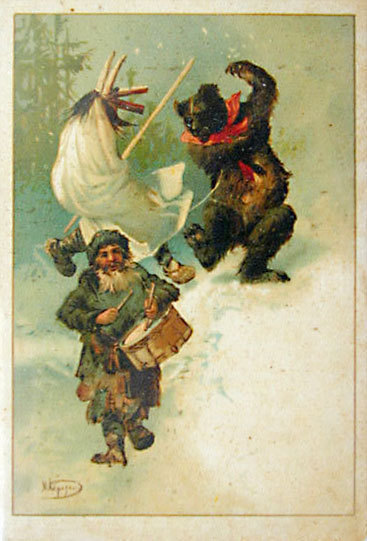
#Korochun (Slavic)
#Karachun, #Korochun or #Kračún is a #Slavic holiday similar to Halloween – a day when the #Crnobog (The Black God) or #Pya and other evil spirits are at their strongest. It was celebrated by pagan Slavs on the longest night of the year, the night of the winter solstice.
The God #Hors (the old sun) becomes smaller as the days become shorter in the Northern Hemisphere, and dies on the winter solstice, defeated by the dark and evil powers of the Black God. The day after Hors is reborn and becomes the new sun.
The holiday became a time to respect ancestors. Fires were lit at cemeteries to keep loved ones warm and feasts held to honor the dead and keep them fed. Ironically, the Hungarians took over the word from its neighboring Slavic people along with Christianity, and now Karácsony means Christmas and the word Korochun and its derivatives tends to mean Christmas in many slavic languages.
( https://en.wikipedia.org/wiki/Korochun )
0 notes
Photo
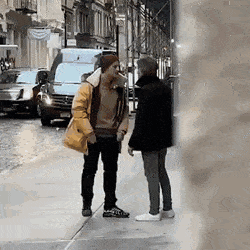
Morozko and Medved, circa Every Year Since the Beginning of Time (colorized)
#Vasya is the van being like.. I should just.. go#disaster twins#morozko#karachun#medved#the bear#the winternight trilogy
122 notes
·
View notes
Text
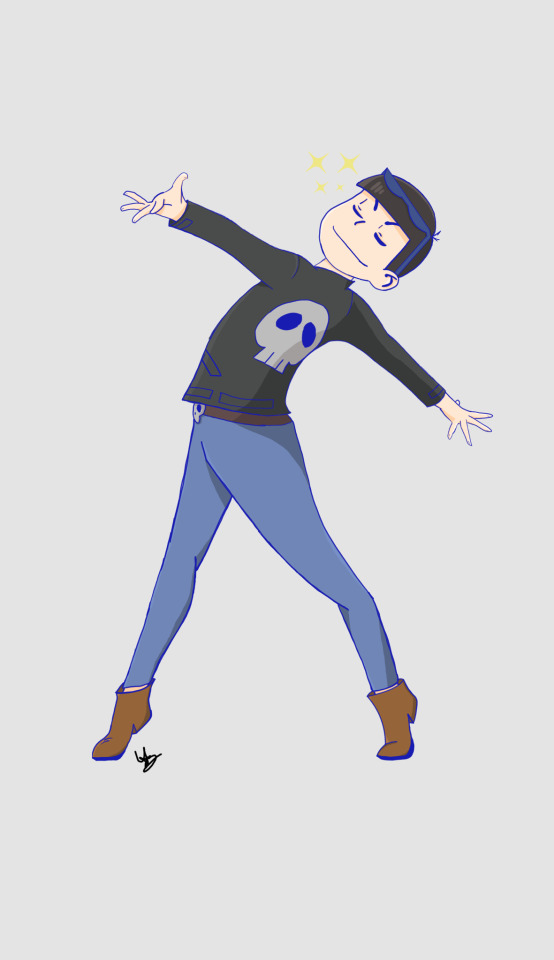
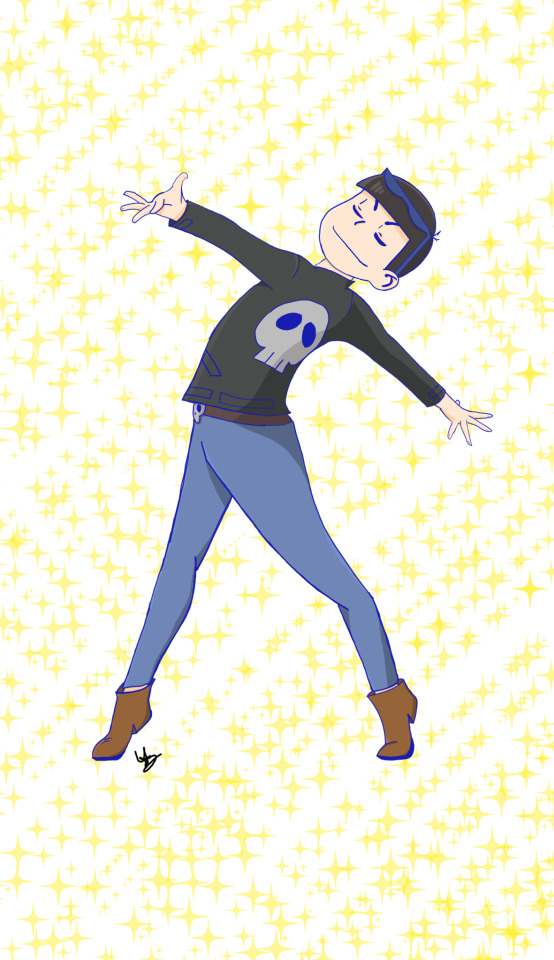
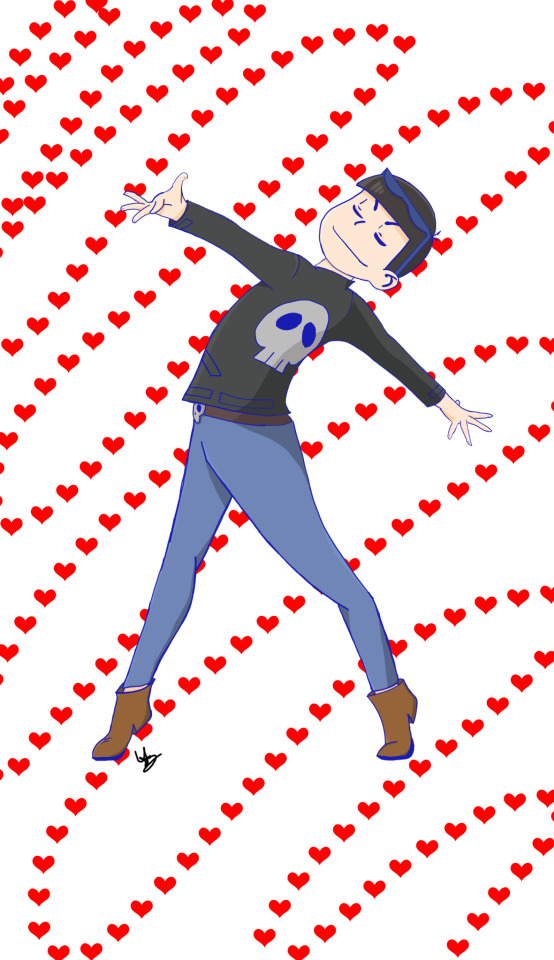
I drew karachun dancing bc… I felt like drawing karachun dancing!
(I couldn‘t decide which background version to post so I‘m posted all 3 xd)
#karamatsu#karamatsu matsuno#karachun#osomatsu san#osomatsu-san#mr osomatsu#mister osomatsu#おそ松さん#anime#art#fanart#osomatsu fanart#dance#dancing
22 notes
·
View notes
Photo
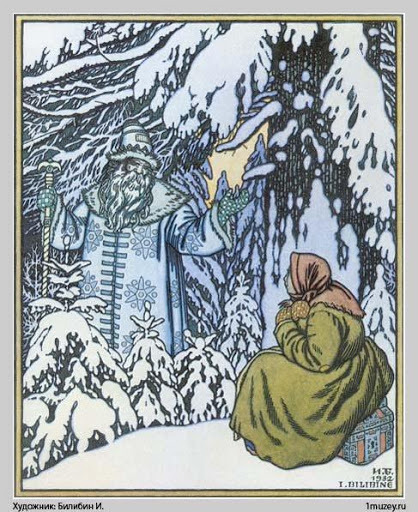
Wikipedia version of the story Dunya reads to the children at the beginning of the book.
https://en.wikipedia.org/wiki/Father_Frost_(fairy_tale)
“Dunya hesitated. The elder children looked at each other. In Russian, Frost was called Morozko, the demon of winter. But long ago, the people called him Karachun, the death-god. Under that name, he was king of black midwinter who came for bad children and froze them in the night. It was an ill-omened word, and unlucky to speak it while he still held the land in his grip. Marina was holding her son very tightly. Alyosha squirmed and tugged his mother’s braid.
“Very well,” said Dunya after a moment’s hesitation. “I shall tell the story of Morozko, of his kindness and his cruelty.” She put a slight emphasis on this name: the safe name that could not bring them ill luck. Marina smiled sardonically and untangled her son’s hands. None of the others made any protest, though the story of Frost was an old tale, and they had all heard it many times before. In Dunya’s rich, precise voice it could not fail to delight.”
Arden, Katherine. The Bear and the Nightingale: A Novel (pp. 4-5). Random House Publishing Group. Kindle Edition.
Katherine Arden So, Morozko is the name of the Russian Jack Frost, a winter demon who is sometimes benevolent and sometimes cruel. He features in multiple fairy tales. What I found interesting about this character though is he has his mythical roots in slavic paganism, as a dark god of winter and death called Chernobog. He evolved over the years from a pretty powerful deity to sort of a wicked fairy-tale creature, and finally (after some European influence) to Ded Moroz, the Russian Father Christmas. I found this journey (from wicked pagan god to giver of treats to children) absolutely fascinating, and I wondered what would go through such a character's mind as he was making that transition over the centuries. Anyway. Um, do Russians know of their pagan past? I certainly can't speak for the country as a whole. I know there are historians and casual enthusiasts who know a great deal about it, and there are definitely practicing pagans in Russia today. I would venture to say that the average Russian knows more fairy tales and fairy tale characters than they do Slavic deities and practices. If that helps :)
#tBatN#Moroz#folklore#Morozko#Ded Moroz#Karachun#Korochun#Krachun#Frost#Father Frost#Frost King#Winter King
4 notes
·
View notes
Photo
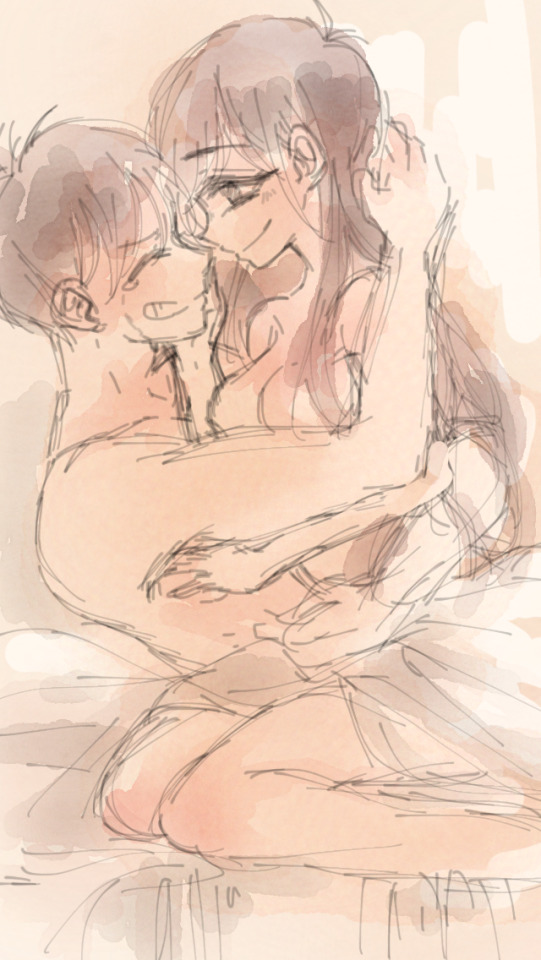
Kara imouto is becoming my new bias
#osokara#blmatsu#but not really bl because#fem!kara#karachun is too cute#mild sin#because no karachun nips#phone drawing#mine
96 notes
·
View notes
Text
У черта на куличках [u chyorta na kulichkah] - "at the devil's babkas"
This is my "Russian idiom of the day" column, and today let's see some of my favourite kind of weird Russian phrases... lookin weird just until you know it's origin. As you know, I love idioms which are not clear even to Russian people, so right now is one of them.
The meaning of it is - "somewhere very distantly of known places".
«У них контора — где-то у черта на куличках, от конечной метро еще десять минут на автобусе» — "They have their office in a kind of weird distant place; I should go there by subway up to terminate station, and then catch a bus to go 10 minutes more"
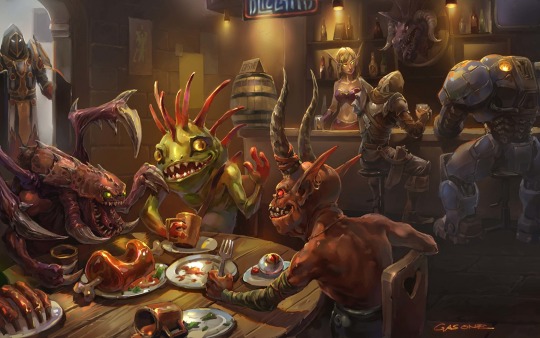
Some Russian people say it as «у черта на куличиках», which sounds much alike to «на куличках». But куличики and кулички are definitely not the same!
If one is у черта на куличиках, it may mean one of two things:
1. The devil (also, I said in one of my former posts, черт is not the Devil himself, but a kind of demon, an evil occult power, usually impictured having horns, a long tail and goat legs) is having a dinner, where the main dish is куличи (pl. from кулич, also the diminutive plural form would be куличики). Кулич is a special type of sweet bread, baked mostly at Easter. I've got known it can be named in English a Babka. That's what Russian Easter куличи aka babkas look like:
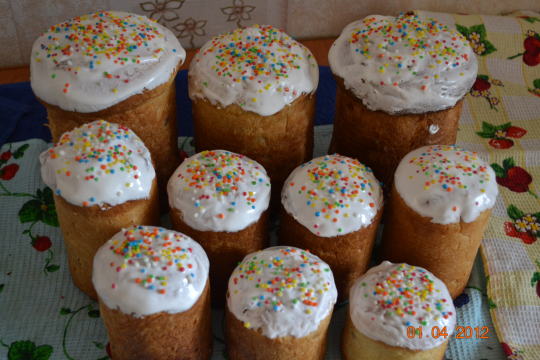
2. The devil (see before) is having a beach party, and invites you for making куличики out of sand. That's another idiomatic thing (in fact it's not, if you remember what кулич is). Because when Russian children are playing in a sandbox, building some constructions out of sand, basically it's called лепить куличики [lepit' kulichiki] - "to make babkas". We dont' say "to make sandcastles" until you really make an effort to do on sand something looking like a real castle. Otherwise - if you just take a plastic bucket, fill it with sand, then turn it upside down and remove a bucket - it's called лепить куличики. Just because the shape which is got looks much alike to a babka.
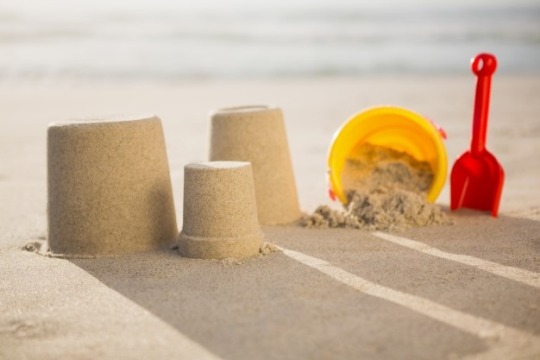
So, anyway. We can think that this idiom tells us of some devil's party, sand of eating or anyway. But it DOES NOT. So, let's see what mysterious куличики really are.
In old Russia, almost entirely covered with woods (part of them in East is famous Taiga), there was some special attitude to forest and everything about it. There was special names for some parts of the forest. One of them described a glade, located deep inside the forest, far from people's houses at the enter of the woods.

These glades were meant to be enchanted. People believed that evil powers (such as черт, also леший [leshiyi] - "a wood-goblin", and кикимора [kikimora] - "a wood-maid") were reigning there. The name for these glades was кулиги [kuligi], pl.; sing. would be кулига [kuliga]. Diminutive for this word (also plural) was кулички. Exactly the same we see in the idiom.
Not a babka party. Not a sand party. Just a distant and spooky place, maybe occupied with occult beings; which, therefore, can be used for living and business. Just because one day people became brave enough to go into woods and look for кулиги and build there houses for their families. That were the people who lived у черта на куличках - very very far away from the main settlement. Now we can say this (if we are Moscow residents) of someone who lives in Бирюлёво [biryulyovo] or Бутово [butovo] districts; and as for some St.Petersburgh residents (maybe I'm totally wrong and should be punished for that by my St. Peter's sweetheart, hehe), it could be Купчино [kupchino] and Автово [avtovo] districts.
-----
P.S. I've just figured out that some Russian folk creatures may be interesting to my foregn followers too! Just right from the post of Karachun, who've been a cruel God of Winter and ended up as a Russian Santa, a nice kid's friend. SOOOOO. Would you like me to make some Russian occult beings posts? DM or comment "+" if you do!

#russian culture#russian language#russia#russian langblr#russian history#idioms#woods#forest#glades#old home#living#brave#russian
29 notes
·
View notes
Text
Russian forces likely targeted Ukrainian hydrotechnical infrastructure in western Dnipropetrovsk Oblast on September 14 to interfere with Ukrainian operations across the Inhulets River. Ukrainian sources reported that eight Russian cruise missiles struck unspecified targets in Kryvyi Rih, Dnipropetrovsk Oblast, and caused extensive flooding in areas of Kryvyi Rih. Russian sources identified the target location as the Karachun Dam, which sits along the Inhulets River on the western outskirts of Kryvyi Rih. Footage of the aftermath of the strike shows a 2.5m increase in the water level of the Inhulets River, which runs south of Kryvyi Rih and is an important geographical feature for the ongoing Ukrainian counteroffensive along the Kherson-Mykolaiv border. Russian forces likely targeted the Karachun Dam to damage Ukrainian pontoon bridges further downstream, especially in light of recent reports that Ukrainian troops are attempting to expand their bridgehead over the Inhulets River near Davydiv Brid as part of the ongoing Kherson counteroffensive.
taking out dams to flood attackers downstream, classic move
6 notes
·
View notes
Quote
I’ll have a story,” said Marina at once. Her tone was light, but her eyes were dark. Dunya gave her a sharp glance. The wind sobbed outside. “Tell the story of Frost, Dunyashka. Tell us of the frost-demon, the winter-king Karachun. He is abroad tonight, and angry at the thaw.
The Bear and the Nightingale, Book One of the Winternight Trilogy by Katherine Arden
7 notes
·
View notes
Photo

#Korochun (Slavic)
#Karachun, #Korochun or #Kračún is a #Slavic holiday similar to Halloween – a day when the #Crnobog (The Black God) or #Pya and other evil spirits are at their strongest. It was celebrated by pagan Slavs on the longest night of the year, the night of the winter solstice.
The God #Hors (the old sun) becomes smaller as the days become shorter in the Northern Hemisphere, and dies on the winter solstice, defeated by the dark and evil powers of the Black God. The day after Hors is reborn and becomes the new sun.
The holiday became a time to respect ancestors. Fires were lit at cemeteries to keep loved ones warm and feasts held to honor the dead and keep them fed. Ironically, the Hungarians took over the word from its neighboring Slavic people along with Christianity, and now Karácsony means Christmas and the word Korochun and its derivatives tends to mean Christmas in many slavic languages.
(https://en.wikipedia.org/wiki/Korochun)
0 notes
